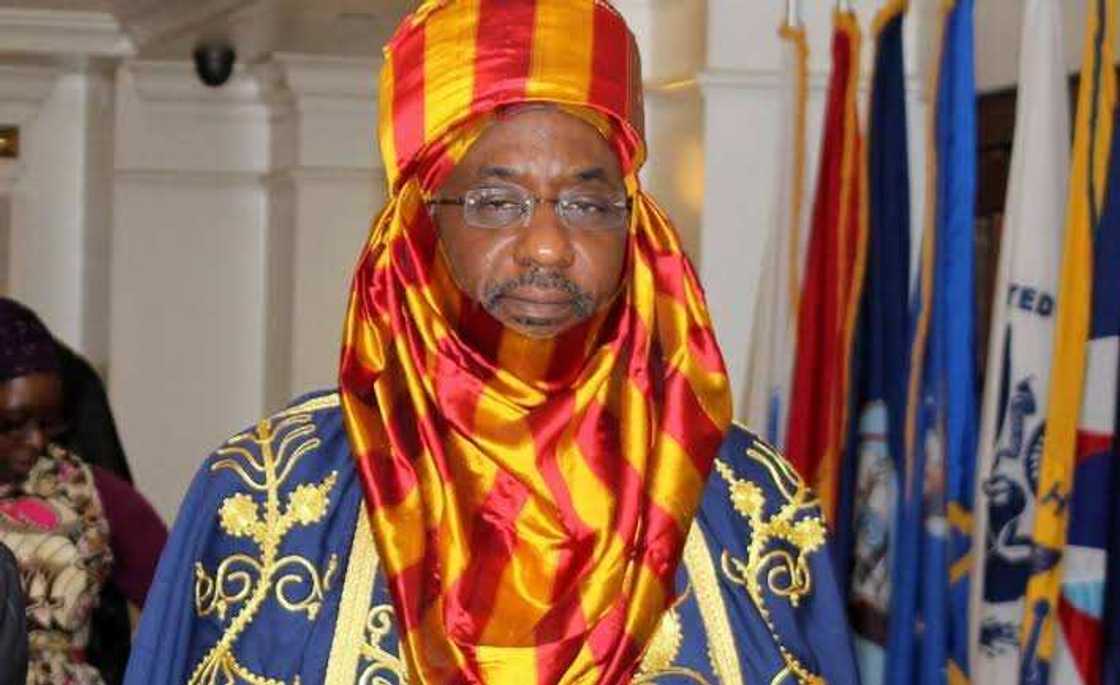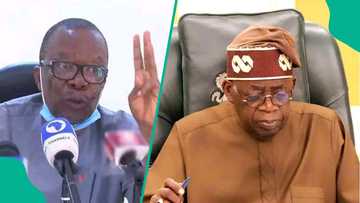Emir Sanusi Urges Revival of United Nigeria Textiles to Protect 10,000 Jobs
- Emir Muhammadu Sanusi II has urged the Federal Government to revive United Nigeria Textiles (UNTL) in Kaduna, warning that over 10,000 jobs are at risk
- The appeal came during a strategic tour led by Minister of State for Industry, Senator John Enoh, aimed at revitalising Nigeria’s textile, cotton, and garment sector
- UNTL’s shutdown in 2022 has raised concerns over rising insecurity and economic decline in the region, especially among youth and women
The 16th Emir of Kano, Dr. Muhammadu Sanusi II, has called on the Federal Government to urgently revive the United Nigeria Textiles (UNTL) in Kaduna, warning that the livelihoods of over 10,000 workers are at risk following the factory’s shutdown in 2022.
The appeal was made on Tuesday during a strategic tour and stakeholder engagement led by the Minister of State for Industry, Senator John Enoh, aimed at revitalising Nigeria’s textile, cotton, and garment sector.

Source: Facebook
The visit formed part of the Federal Government’s industrial revitalisation efforts under item seven of President Bola Ahmed Tinubu’s 8-Point Agenda, which prioritises job creation, inclusive economic growth, and industrial development.
UNTL closure threatens textile jobs
Emir Sanusi expressed deep concern over the cessation of operations at UNTL, a once-thriving textile hub that employed thousands across the value chain—from spinning and weaving to printing and garment production.
“The factory’s cessation of operations in 2022 is worrying, despite its legacy of employing over 10,000 workers across the textile value chain, from spinning and weaving to printing and garment production,” he said.
He warned that the socio-economic fallout from the factory’s collapse could exacerbate insecurity in the region, particularly affecting youth and women. Sanusi also highlighted critical challenges that contributed to the factory’s decline, including unreliable power supply, the influx of smuggled and dumped textiles, and weak intellectual property protection.
“Therefore we appeal to the Federal Government to urgently address the challenges of unreliable power supply, which severely hindered production, infiltration of smuggled and dumped textiles, undermining domestic competitiveness and weak intellectual property protection, discouraging innovation and investment,” he added.

Read also
Northern leaders commend Tinubu for fulfilling electoral promises, ‘Progress on infrastructure’
FG reaffirms commitment to textile sector revival
Responding to the Emir’s concerns, Senator Enoh reaffirmed the Federal Government’s commitment to repositioning the textile industry under President Tinubu’s leadership. He noted that several initiatives have already been launched to address sectoral bottlenecks and promote sustainable growth.
“These include convening sub-sector stakeholder engagements to identify and resolve bottlenecks and also promoting public-private partnerships and collaboration with development partners to strengthen policy frameworks to support local manufacturing and boost export competitiveness,” Enoh stated.
He emphasised the symbolic and economic significance of UNTL’s revival, asserting that restoring the factory to full operation would not only reinvigorate
Nigeria’s textile heritage but also serve as a catalyst for broader industrial growth.
Textile industry revival key to economic transformation
The revival of UNTL is seen as a cornerstone in the Federal Government’s broader strategy to rejuvenate Nigeria’s manufacturing base and reduce unemployment.
Stakeholders believe that restoring confidence in the textile sector could unlock new opportunities for innovation, investment, and export competitiveness.
As the government continues its strategic engagements, the spotlight remains on Kaduna, where the fate of thousands of textile workers hangs in the balance.

Source: UGC
Muhammadu Sanusi reinstated as Emir of Kano
Legit.ng earlier reported that Muhammadu Sanusi II, a former emir of Kano, has reportedly been reinstated. Leadership newspaper said on Thursday, May 23, that it "authoritatively gathered" that Sanusi was restored to his previous monarchical role following the resolution of the Kano house of assembly to dismantle several new emirates in the state.
Although Sanusi's reinstatement has not been officially announced, the newspaper stated that it has it "on good authority" that Sanusi II has been reinstated, and is expected in Kano on Friday, May 24.
Source: Legit.ng




